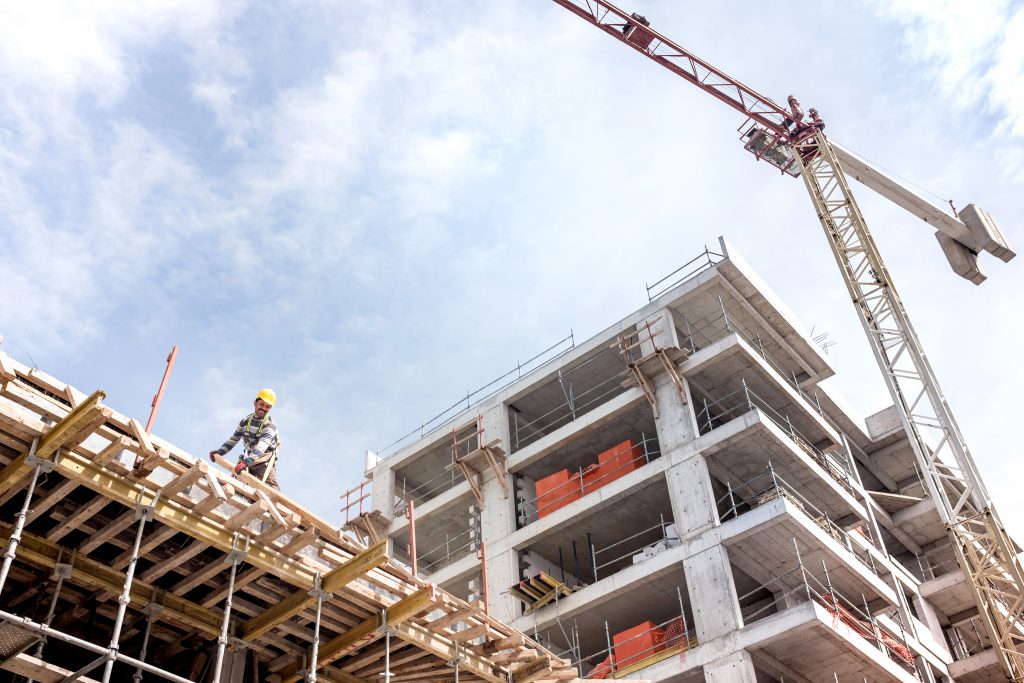Majority of building sites inspected failed CRPD compliance requirements

The majority of buildings under construction or redevelopment which were inspected last year by the Commission for the Rights of Persons with Disability (CRPD) were found to be non-compliant with the minimum accessibility standards.
It transpires that in 2020, the CRPD carried out 307 building site inspections, of which only 133 satisfied the criteria for the issuance of a compliance certificate. The remaining 174 cases, which accounted to 57% of the total inspections made, were deemed as not compliant.
The staggering figure emerged from the CRPD 2020 annual report. By law the Commission is also expected to vet development planning applications to ensure the accessibility of the project at design stage, prior to the start of works. In this case the CRPD scrutinised 4,030 applications of which only 611 or 15% were deemed satisfactory straight away. In the rest of the cases there were 2,819 applications (70%) whereby amendment to the plans were requested and another 600 which due to their nature were exempted from being vetted by the CRPD.
Asked for its reaction by Voice of the Workers Weekly, a spokeswoman for the Commission remarked that these figures showed that as a society, we still think of accessibility as an afterthought.
“If our society had to adopt the universal design approach, then we would not face such a large number of refusals, as projects would be thought of in terms of accessibility from the very start. By including the accessibility issues at the end of the planning process, accessibility constitutes only another hurdle for the project’s success,” the spokeswoman said.
Asked if the problem could be that certain accessibility standards were too stringent, the CRPD disagreed. “If one designs a project without taking into consideration universal design from the very start, then it can be very tough to live up to the country’s standards, but if you factor them in from the very beginning, then they are not difficult to work with,” the spokeswoman said.
70% of the plans submitted were not compliant
An analysis of the figures found in the 2020 annual report reveals that 70% of the plans vetted by the Commission at planning phase were shot down. This does not mean that all of these 2,819 plans it has objected to were non-compliant to the same extent. Shortfalls included lack of information, minor tweaking, substantial changes or major rethinking. In this case applicants may resubmit fresh plans to address the issues flagged.
On the other hand, the 57% non-compliance figure refers to instances whereby the CRPD refused to grant a compliance certificate. The latter attests that a building constructed in line with the approved plans. Without such certificate, one is not able to apply for utilities such as water and electricity. The issues encountered in such cases included buildings not according to the plans and fixtures not installed as per standards. While in some case the issue is major, there are other circumstances it can be easily resolved.
Developers may ask for exemption
However, there are cases in which the applicant believes that it is not possible to adhere to certain standards due to technical reason or in view of the financial outlay involved. In that case, there is a proviso under the Equal Opportunities for All (Persons with Disability) Act, in which the applicant may file a case before the Test of Reasonableness Board (ToRB). Should the Board uphold the request, it may grant an exemption.
In 2020, the Board received 90 such applications, where only 23% were refused an exemption. “The fact that the Board only received 90 requests during the same period as 2,819 applications were refused by CRPD, amply shows that the overwhelming majority of applicants realise that their best course of action is to comply with what is expected of them. When it comes to a compliance, things are a bit different as the building phase would have already been done. Usually, a bank guarantee consisting of a sizeable portion of the cost of works still to be carried out is issued in favour of CRPD, to be released only when works are carried out to its satisfaction within an agreed timeframe,” the spokeswoman said.
